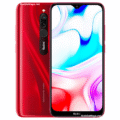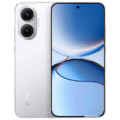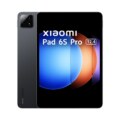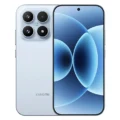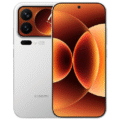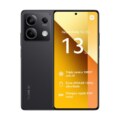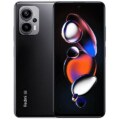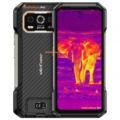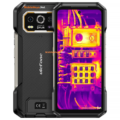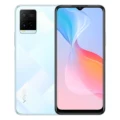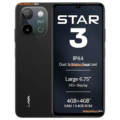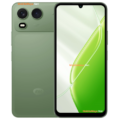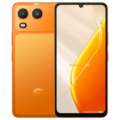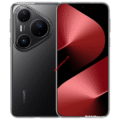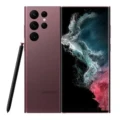Price List: Under Tk.5,000 | Tk.5001-10000 | Tk.10001-15000 | Tk.15001-20000 | Tk.20001-30000 | Tk.30001-40000 | More Mobiles
- Home
- All Mobile
- Xiaomi
- Xiaomi Pad 7S Pro
Xiaomi Pad 7S Pro
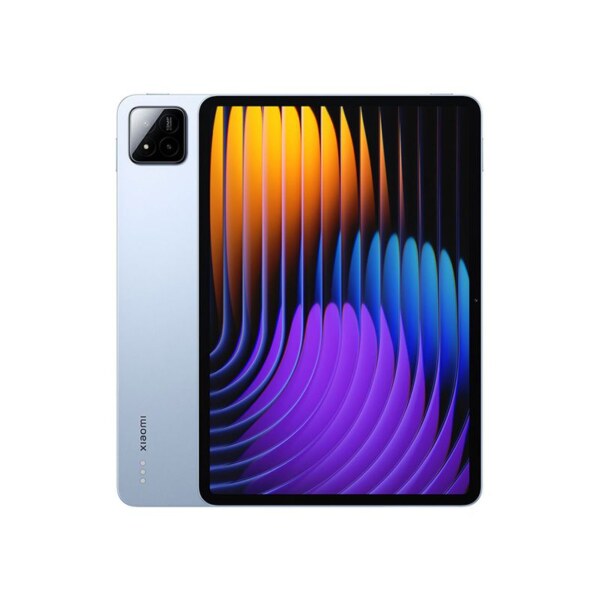


Specifications
Price in Bangladesh
| Expected Price | Coming soon |
General
| Device Type | Tablets |
| Released | February, 2026 |
| Status | Available |
Hardware & Software
| Operating System OS => Every computer system run on a base software called Operating System (OS). Operating System controls all basic operations of the computer (such as smartphone, PDAs, tablet computers and other handheld devices). The Operating System allows the user to install and run third party applications (apps), apps are used to add new functionality to the device. | Android |
| OS Version | v15 |
| User Interface UI or user interface of a device is the look and feel of the on-screen menu system. How it works, its color scheme, how it responds to button presses, all of these things are part of the user interface. | HyperOS 2 |
| Chipset Chipset is a group of integrated circuits designed to perform one or a more dedicated functions, often with real time computing constraints, Popular smartphones are equipped with more advanced embedded chipsets that can do many different tasks depending on their programming. | Qualcomm SM7675-AB Snapdragon 7+ Gen 3 (4 nm) |
| CPU CPU (Central Processing Unit) mostly known as processors, CPU processes instructions in order to carry out certain functions that make your device operate properly. Processors are often described as the brain of computers, smartphones and tablets, Smartphones and tablets rely on processors to carry out their every task, Processors are an incredibly important factor in selecting any type of computing device, including your smartphone. | - |
| GPU GPU (Graphics Processing Unit) is a single-chip processor designed to rapidly manipulate and alter memory to accelerate the creation of images in a frame buffer intended for output to a display, This includes things such as lighting effects, object transformations, and 3D motion. | - |
| RAM (Memory) RAM (Random Access Memory) is a type of computer memory that can be accessed randomly, any byte of memory can be accessed without touching the preceding bytes that allows information to be stored and accessed quickly from random locations. RAM is the most common type of memory found in computer systems, smartphones, tablets and other electronic devices. | 8 GB, 12 GB |
Design
| Dimensions | - |
| Weight | - |
| Colors |
Black, Blue, Green |
| Build Material | Glass front, aluminum back, aluminum frame |
Display
| Display Type Display Technology => A number of display technologies and types used in mobile phones => TFT (Thin Film Transistor), IPS (In-Place Switching), OLED (Organic Light Emitting Diode), AMOLED (Active-Matrix Organic Light-Emitting Diode), Super AMOLED (an even advanced version of AMOLED), Resistive Touchscreen (Resistive touchscreens contain two layer of conductive material with a very small gap between them which acts as a resistance), Capacitive Touchsceen (Capacitive touchscreen technology consists of a layer of glass coated with a transparent conductor) | IPS LCD |
| Size | 11.2 inches |
| Resolution | 2136 x 3200 pixels |
| Brightness | 800 nits |
| Refresh Rate | 144Hz |
| HDR 10 / HDR+ support |
Rear Camera
| Camera Setup | Single |
| Main Camera | 13 MP |
| OIS | |
| Video | 4K@30fps, 1080p@30/60fps |
Front Camera
| Camera Setup | Single |
| Secondary |
8 MP |
| Video | 1080p@30fps |
Battery
| Battery Type Battery Type => Cell phones run on various kinds of batteries depending on the manufacturer, phone size or shape and features. There are basically four types of cell phone batteries => Lithium Polymer, Lithium Ion, Nickel Metal Hydride and Nickel Cadmium. | Li-Ion (Lithium Ion) |
| Placement | Non-removable |
| Capacity Battery Capacity is a measure (typically in Amp-hr) of the charge stored by the battery, and is determined by the mass of active material contained in the battery. The battery capacity represents the maximum amount of energy that can be extracted from the battery under certain conditions. | 8850 mAh |
Storage
| Storage Capacity | 128 GB, 256 GB |
| USB OTG |
Network
| 2G Network |
N/A |
| 3G Network |
N/A |
| 4G Network |
N/A |
| 5G Network |
N/A |
| SIM SIM (Subscriber Identity Module) is a small card that contains mobile network subscriber's account information. This allows the phone using the card to attach to a mobile network. The SIM card is most commonly associated with GSM and UMTS mobile networks. Moving a SIM card from one phone to another allows a subscriber to switch mobile phones without having to contact their mobile network carrier. SIM cards can also be used by a phone to store limited amounts of data, such as phone numbers and text messages. | Standard SIM |
Data
| GPRS GPRS (General Packet Radio Service) is a packet oriented mobile data service on the 2G and 3G cellular communication system's global system for mobile communications (GSM), Generally, GPRS is used for the purpose of wireless data transfer, such as sharing pictures and videos or browsing the Internet via a mobile phone connection. | |
| EDGE EDGE (Enhanced Data GSM Environment) is a wireless network technology generally considered the next step in the 2G network offers data transfer rates up to four times faster than ordinary GSM networks, Generally, EDGE is used for the purpose of wireless data transfer, such as sharing pictures and videos or browsing the Internet via a mobile phone connection. | |
| Speed | No |
| Web Browser Web Browser => a web browser is a software application used to locate, retrieve and display content on the World Wide Web, including Web pages, images, video and other files, The primary function of a web browser is to render HTML, the code used to design or markup webpages. | HTML5 |
Messaging
| SMS SMS (Short Messaging Service) is a text messaging service component of phone, Web, or mobile communication systems. It uses standardized communications protocols to allow mobile phone devices to exchange short text messages over the networks. | Yes |
| MMS MMS (Multimedia Messaging Service) is a standard way to send messages that include multimedia content (audio clips, video clips and images) to and from mobile phones over wireless networks using the WAP protocol. | |
| Email Email (Electronic Mail) is a system for receiving, sending, and storing electronic messages, Similar to a letter, email is text messages that may contain files, images, or other attachments sent via the internet to a recipient by using applications and software prograps. An email address is required to receive email, and that address is unique to the user. | Yes |
| IM IM (Instant Messaging) is an exchange of text messages through a software application, it enable you to create a kind of private chat room with another individual in order to communicate in real time over the Internet. | Yes |
Connectivity
| Bluetooth Bluetooth is a wireless communications technology for exchanging data between mobile phones, headsets, computers and other network devices over short distances without wires, Bluetooth technology was primarily designed to support simple wireless networking of personal consumer devices. | 5.4, LHDC 5 |
| Wi-fi Hotspot | |
| Infrared Infrared connectivity is an old wireless technology used to connect two electronic devices. It uses a beam of infrared light to transmit information and so requires direct line of sight and operates only at close range. | |
| USB | USB Type-C 3.2, accessory connector |
| GPS GPS The Global Positioning System is a satellite-based radio navigation system, GPS permits users to determine their position, velocity and the time 24 hours a day, in all weather, anywhere in the world, In order to locate your position, your device or GPS receiver must have a clear view of the sky. | No |
| NFC NFC (Near field communication) is a set of standards for smartphones and similar devices to establish peer-to-peer radio communications with each other by touching them together or bringing them into proximity, usually no more than a few inches. |
Media
| FM Radio | No |
| Loudspeaker | Yes, with stereo speakers (4 speakers) |
| 3.5mm Jack | No |
Sensors & Security
| Fingerprint Sensor |
More
| Made By | China |
Performance Tests
Xiaomi Pad 7S Pro Price in Bangladesh
The Xiaomi Pad 7S Pro is expected to be available soon in Bangladesh with storage options of 128GB and 256GB. Although the official price is yet to be announced, this upcoming tablet aims to position itself in the mid-to-high range segment by offering flagship-worthy features at a competitive price point.
This device boasts a sleek and modern design paired with a large 11.2-inch display featuring a high 144Hz refresh rate, making it ideal for multimedia consumption and productivity. It is powered by the efficient Snapdragon 7+ Gen 3 chipset, coupled with up to 12GB RAM, ensuring smooth performance for multitasking and gaming. With an 8850mAh battery and fast USB-C connectivity, the Pad 7S Pro offers a balanced package for users looking for a premium tablet experience without flagship-level pricing. Its vibrant IPS LCD screen, solid camera setup, and premium build materials further highlight its appeal.
Xiaomi Pad 7S Pro Specifications
Display and Design
The Xiaomi Pad 7S Pro features an 11.2-inch IPS LCD panel with a sharp resolution of 2136 x 3200 pixels, delivering crisp and vivid visuals. The display supports a smooth 144Hz refresh rate, enhancing scrolling and gaming fluidity. Additionally, it offers HDR10 and HDR+ support along with a peak brightness of 800 nits, which helps ensure clear visibility even in bright environments.
From a design standpoint, the Pad 7S Pro combines durability and style with a glass front paired with an aluminum back and frame, lending it a premium feel and robust build. It comes in three elegant colors: Black, Blue, and Green. While exact dimensions and weight haven’t been disclosed, the tablet promises a comfortable grip and a lightweight profile for extended use.
Performance and Processor
Under the hood, the Xiaomi Pad 7S Pro is powered by Qualcomm’s Snapdragon 7+ Gen 3 chipset fabricated on a 4nm process. This modern chipset integrates a capable CPU and GPU combination designed to handle everyday tasks, gaming, and heavy multitasking efficiently. The device is available in RAM variants of 8GB and 12GB, paired with 128GB or 256GB of internal storage.
While expandable storage isn’t mentioned, the ample onboard storage should suffice for most users’ needs. The chipset and RAM combination delivers smooth app launches, seamless navigation, and responsive gaming performance, making the tablet versatile for productivity and entertainment alike.
Camera and Video
The Xiaomi Pad 7S Pro is equipped with a single 13MP rear camera featuring optical image stabilization (OIS), which aids in reducing blur for sharper photos and steadier videos. The camera supports video recording in 4K resolution at 30fps and 1080p at both 30fps and 60fps, catering to casual content creators and video calls.
On the front, there is an 8MP selfie camera capable of 1080p video recording at 30fps, suitable for video conferencing and selfies. While the camera setup is straightforward, OIS and 4K video capture stand out as valuable features in this tablet category.
Battery and Charging
With an 8850mAh non-removable lithium-ion battery, the Xiaomi Pad 7S Pro is designed to deliver long hours of usage, whether for streaming, gaming, or productivity. The tablet supports fast charging via a USB Type-C 3.2 port, ensuring quick power-ups and minimal downtime. While wireless charging is not supported, the large battery combined with the efficient Snapdragon chipset promotes excellent battery endurance.
Connectivity and 5G Support
The Xiaomi Pad 7S Pro supports only Wi-Fi connectivity and does not include cellular (2G/3G/4G/5G) network options, making it a Wi-Fi-only tablet. It features Bluetooth 5.4 with LHDC 5 support for high-quality audio streaming and includes an infrared sensor for remote control functions. Connectivity options also include USB Type-C 3.2 for data transfer and charging.
Notably, the device lacks GPS and NFC, focusing more on home and office usage where such features are less critical. It includes a standard SIM slot, but this is for non-cellular purposes as the device does not support mobile network connectivity.
Additional Features
The Xiaomi Pad 7S Pro runs on Android 15 with Xiaomi’s HyperOS 2 user interface, promising a clean and intuitive software experience with the latest Android features. It houses stereo speakers with a total of four speakers delivering immersive sound, perfect for media consumption.
Security is enhanced with fingerprint sensor support, offering quick and secure device unlocking. The tablet does not feature a 3.5mm headphone jack but supports USB-C audio accessories. Its premium build quality, vibrant display, and audio prowess make it an excellent choice for entertainment and productivity.
Reason to Buy
- Large, bright 11.2-inch IPS LCD display with a smooth 144Hz refresh rate
- Powerful Snapdragon 7+ Gen 3 chipset with up to 12GB RAM for excellent performance
- Impressive 8850mAh battery for extended usage
- Optical Image Stabilization (OIS) on the rear 13MP camera and 4K video recording capability
- Clean and modern Android 15 with HyperOS 2 for smooth user experience
- Premium aluminum and glass design with multiple color options
- Quad stereo speakers for immersive audio quality
Verdict
The Xiaomi Pad 7S Pro stands out as a strong contender in the mid-to-high range tablet market. Its blend of a vibrant high-refresh-rate display, capable Snapdragon processor, long-lasting battery, and solid camera system offers a well-rounded package for users who want a reliable device for entertainment, work, and casual photography.
Although it lacks cellular connectivity, GPS, and NFC, its Wi-Fi focus and premium multimedia features make it ideal for students, professionals, and media consumers looking for an affordable yet powerful tablet. The tablet’s competitive expected price point adds to its appeal, positioning the Xiaomi Pad 7S Pro as a smart choice for buyers in Bangladesh seeking modern features without the flagship price tag.
FAQ
Q: When will the Xiaomi Pad 7S Pro be released in Bangladesh?
A: The Xiaomi Pad 7S Pro is expected to launch in May 2025, but an official release date and price are yet to be confirmed.
Q: Does the Xiaomi Pad 7S Pro support 5G?
A: No, this tablet supports only Wi-Fi connectivity and does not offer 5G or cellular network support.
Q: What are the available storage and RAM options?
A: The device comes in 128GB and 256GB storage variants with either 8GB or 12GB RAM.
Q: Can I expand the storage on the Xiaomi Pad 7S Pro?
A: There is no official information on expandable storage via microSD.
Q: Does it support fast charging?
A: Yes, the Pad 7S Pro supports fast charging through its USB Type-C 3.2 port.
Q: Is the Xiaomi Pad 7S Pro suitable for gaming?
A: Yes, thanks to the Snapdragon 7+ Gen 3 chipset and 144Hz display, it offers smooth gaming performance.
User Reviews
Disclaimer Note
We do not guarantee that the information of this page is 100% accurate and up to date.




